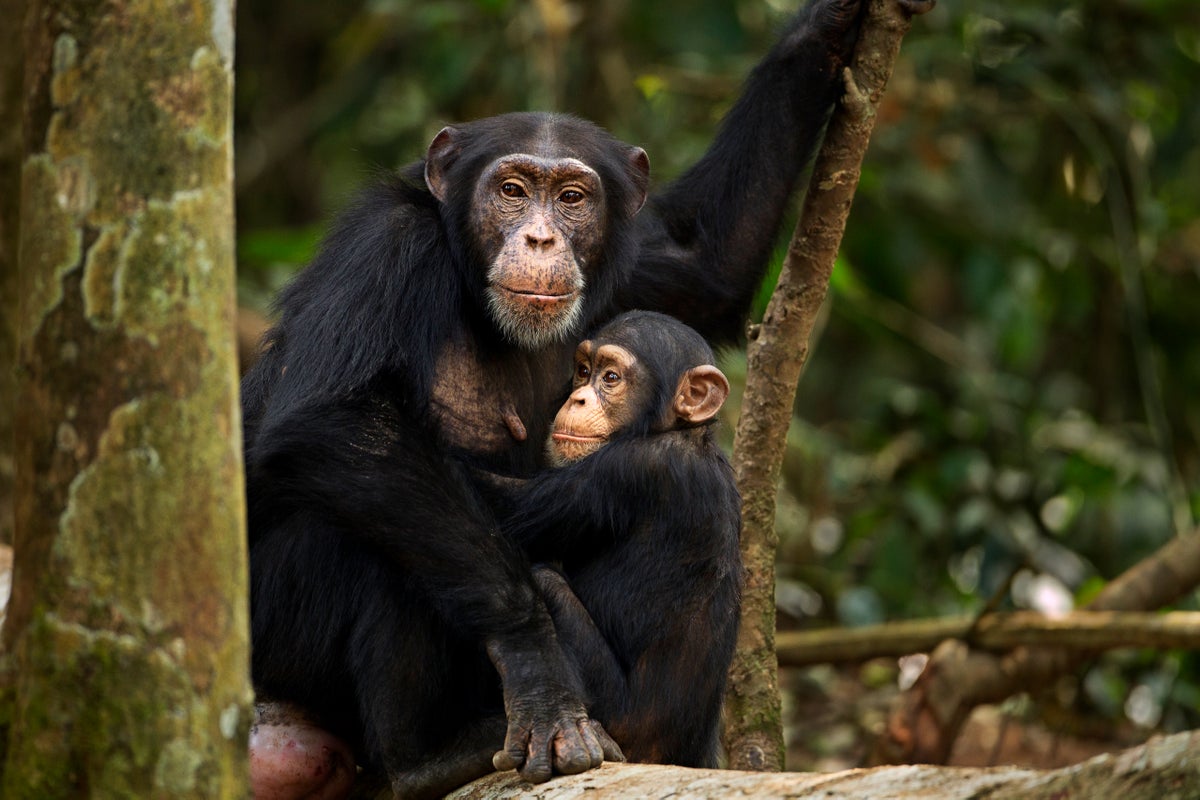Rubin, a young bonobo, was searching for food close to his mother Rose in the lush Congo rainforest when an older bonobo named Olive grabbed some food from Rubin’s small hands. Olive then struck the baby forcefully on the face and neck, right in front of his mother.
Observing the group from a distance of about 30 feet, primatologist Rachna Reddy from the University of Utah anticipated Rose to take action. “I was just like, ‘Gasp! Somebody’s about to get beaten up,’” she recalls. However, to Reddy’s surprise, Rose did not intervene, even as baby Rubin cried out.
In a recent research study, Reddy and her team uncovered intriguing distinctions in the parenting approaches of humanity’s closest relatives: bonobos and chimpanzees. While bonobo mothers seldom interfered when their offspring faced mistreatment, chimpanzees exhibited behaviors akin to “helicopter moms,” stepping in almost half the time. This contrasted with the expectations of primatologists regarding these two species, highlighting the diverse ways supportive parenting manifests across the animal kingdom. The study, featured in Animal Behaviour in February, shed light on this phenomenon.
Bonobos and chimpanzees are characterized by starkly different reputations. Bonobos are often perceived as the more amiable cousins, whereas chimpanzees have a more aggressive image. In chimpanzee society, dominant males resort to violence to protect their territory, with instances of infanticide and coercion towards females being prevalent. On the other hand, bonobo society is matriarchal, with females exerting a significant influence on their offspring, particularly sons who inherit their social status from their mother and may require her assistance as a facilitator for successful mating.
Reddy had initially anticipated that dominant female bonobos would exhibit exemplary mothering behavior. However, witnessing Olive’s actions towards Rubin prompted Reddy to explore potential species-level differences in parenting styles.
Throughout multiple field expeditions, Reddy and her team monitored chimpanzees in Kibale National Park, Uganda, and bonobos in Kokolopori Bonobo Reserve, Democratic Republic of the Congo. The researchers meticulously recorded instances where another member of the species engaged in hostile behavior towards a juvenile in the presence of their mother. Surprisingly, bonobo mothers adopted a more hands-off approach, intervening in only 8 percent of conflicts involving their offspring as the “victims,” whereas chimp mothers intervened nearly half the time.
Despite the contrasting reputations of the two species, Reddy’s data revealed that both young bonobos and chimpanzees faced conflicts carrying similar risks of actual harm. Some young bonobos experienced injuries or missed out on food while their mothers observed, challenging the notion that bonobo offspring are immune to serious harm in their more peaceful society.
The researchers initially speculated that bonobo mothers refrained from intervening to maintain crucial relationships with other dominant females. However, even when the aggressor was a low-ranking orphaned male, bonobo mothers remained reluctant to step in.
Additionally, there was a notable difference in bystander reactions between bonobos and chimpanzees. While chimpanzees unrelated to the victim intervened in 21 percent of conflicts, bonobo bystanders intervened only 7 percent of the time. This variance hints at a deeper psychological distinction between the two species that extends beyond parenting behaviors.
Further research is warranted to validate these patterns across other primate populations. One plausible explanation is that the constant threat of violence in chimpanzee society may predispose chimps to defend their social group members instinctively, irrespective of the situation. In-group bonds play a pivotal role in chimpanzee society, prompting individuals to take risks to protect one another in confrontations with rival groups.
Experts laud the study for its significant findings, noting that it challenges preconceived notions about bonobos and chimpanzees. The proactive nature of chimpanzees in intervening during conflicts underscores their protective instincts, which may contribute to the cohesive nature of their society.
It is crucial not to impose human-centric ideals of parenting on bonobos, emphasizing that their approach to conflict intervention may differ from that of chimpanzees. Conflict resolution may not be a prominent aspect of bonobo mothering, unlike in chimpanzees, reflecting the diverse strategies employed by these closely related species.

